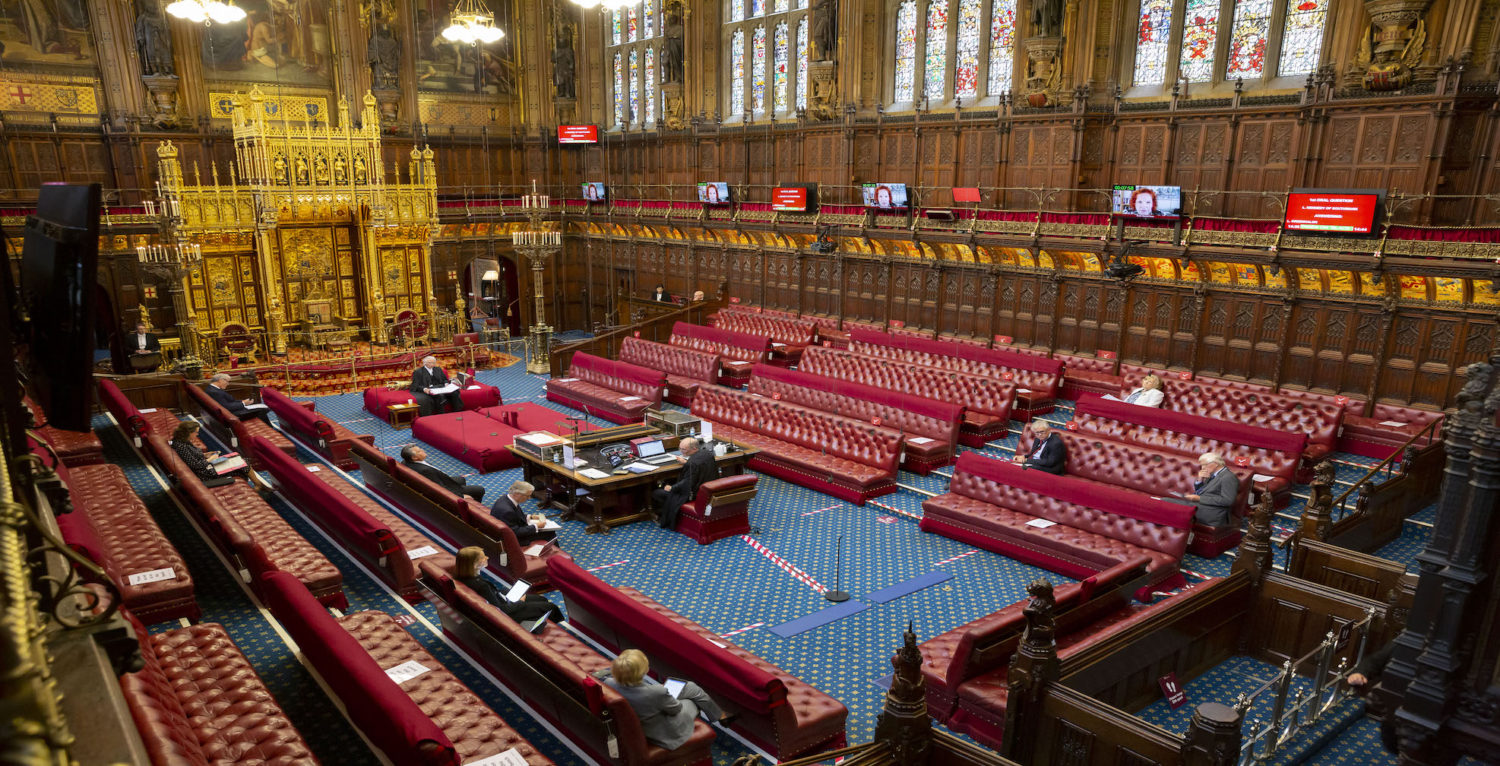Remaking the system
Reforming our democracy is a top priority in the fight against inequality, argues Faiza Shaheen.
Our systems and institutions allow for complex, interconnected inequalities to persist, as exposed by this year’s health crisis. To rebuild a more equal Britain, what meaningful, structural changes are needed? The Fabian Review asks authors for their demands.
When the home secretary Priti Patel responded to Extinction Rebellion’s blockade of the Murdoch printing press by arguing that the stunt was an “attack on our free press, society and democracy”, she was met with an immediate barrage of mocking tweets. A free press does not have the sort of concentrated ownership structure ours does – with five billionaires owning 80 per cent of our print papers; it would not allow corporate sponsors to censor its content, like HSBC did to Peter Oborne at The Telegraph; and it would not be dominated by the same posh white men from a tiny selection of private schools and elite universities. We have a print press in the UK which is disproportionately rightwing. In my lifetime every elected UK prime minister has had the backing of Rupert Murdoch – and we all know that is not a coincidence.
Our skewed media is far from the only way our democratic system fails to be free and fair. The most glaring example is the House of Lords – recently stuffed with yet more privately educated right wingers – including Boris Johnson’s own brother, Jo. In June 2020 there were four dukes, one marquess, 24 earls, 16 viscounts and 44 barons among the 92 hereditary peers entitled to sit in the House of Lords. Does that sound like democracy? A whopping 57 per cent of those in the House of Lords were privately educated, compared to 7 per cent of the British population. It is also over 70 per cent male. And there are lots of these unelected Lords – at over 800 members the UK’s House of Lords is the only upper house of any bicameral parliament in the world to be larger than its lower house. Among legislative bodies worldwide, only the Chinese National People’s Congress is larger, with nearly 3,000 seats.
You cannot have a House of Lords configured this way and legitimately argue that we do not have an elite democratic structure in this country. The elected House of Commons is better in terms of socioeconomic mix, but with 29 per cent having attended private school it is is still far from representative of this country. To top it off we are on our 20th Etonian prime minister – meaning a third of all British prime ministers were educated at this one relatively small school. I suppose old habits die hard. In his bestselling book, Capital in the 21st Century, Thomas Piketty declared that western society is returning to what he terms the ‘patrimonial capitalism’ of the 19th century, where an entrenched class of wealthowners, rentiers and high-income labourers enjoy an unassailable position at the top of society. Whether you look at the Sunday Times rich list, the labour market or the make-up of our parliament you can see how this conclusion fits the UK today.
This representation mismatch and biased press has real consequences – not least for inequality. It is not rocket science – when you have more politicians that understand and have lived experience of poverty and hardship, or even just everyday middle class life, you have more politicians that fight for well-funded public services, affordable housing and a greater willingness to curb the excess wealth and power of the super rich. On the flipside, when you have a sticky and dominant elite at the top they shape policy and public narratives to suit their agendas and protect their assets.
Abolishing the House of Lords and creating a new elected chamber of citizens is one obvious way we can start the radical reform our highly problematic democratic system needs. Given Johnson’s efforts to stuff the House of Lords with loyalists, there is zero chance that this is on the government’s ‘to do’ list. Turkeys don’t vote for Christmas so we will need these demands to come from the public and other political figures.
Proportional representation must also be on the list of radical changes to remake the democratic system. Studies have found that countries with proportional electoral systems have considerably lower income inequality than those with majoritarian systems like first past the post. Based on the evidence, political scientists have concluded there is a causal relationship at work, with income inequality decreasing as the degree of proportionality of a system increases. Countries with PR also tend to have a more equal distribution of public goods. This can be explained by the way PR systems mean more power sharing and hence temper the more extreme policy measures that do not speak to median voter preferences.
It is not just about structural change at the top: there is also a lack of development of grassroots and workingclass activists in our communities. This is true of all working-class groups, but especially appears to be the case for black and young people. In my experience, too often black and young activists are used for photo opportunities and their energy in canvassing, but then find their political advancement blocked as they are patronised and, as is shockingly common for young female activists, face sexual harassment.
These blocked pipelines of talent shut out the voices of the young, who want to see opportunities to live in spacious and genuinely affordable homes where they can begin raising their own families instead of being trapped with their parents. Limited black and brown voices also mean that institutional problems with racism are pushed down the agenda. Without these voices, the priorities of much of the political class remain with preserving the wealth of existing homeowners, well-off pensioners, and the rentier class of landlords. No wonder so many young people and working-class minorities give up on traditional politics.
The good news is that young people are more politically engaged than ever, whether that be in resistance projects fighting gentrification, opposing inequality in our education system, Black Lives Matter protests, or direct action and protests to save the planet. I am hoping that this new generation will refuse to be sidelined, but the Labour party needs to step up its approach to use this engagement effectively. Trade unions too have a major and renewed role to play in organising in workplaces, finding new diverse and working-class voices, bringing democracy to people’s everyday lives and ultimately engaging them with politics more generally.
Of course, democratic reform is hampered not just by a right-wing elite Conservative government, but all the biased media that support them. Murdoch will continue to be a menace to our democracy unless we finally implement the proposals of the supposed first phase of the Leveson Inquiry, and finally move to phase 2 to look at corruption and collusion between the press and institutions. This touches on the wider issue of the vested interests of newspaper proprietors – including their favoured economic policies – and how these manifest themselves in a diet of biased news.
Again, we can not wait in vain for the Conservatives to take this agenda forward. We are in an era when people – aided by technology – are shunning the legacy media in favour of alternatives. On the left, new podcasts and outlets like Novara Media and Tribune have grown fast. An explosion in citizen journalism had previously been predicted but failed to materialise. However, with new apps and platforms, we may finally be witnessing a blossoming of democracy and creativity from the grassroots to tell the stories not told by privately educated columnists. These will be crucial in setting an agenda for this country, and reminding people of Malcolm X’s still very relevant warning: “If you’re not careful, the newspapers will have you hating the people who are being oppressed, and loving the people doing the oppressing.”
As those who have worked on inequality issues for a long time know, the issue and its solutions are highly complex. Even if we started taxing wealth, without a major shift in our power structures we will fail to tackle inequality in a sustainable way. Those power structures include a so-called ‘free press’ that bats for the interests of the financial and political elite over the need for equality and saving our planet, as well as our arcane democratic system which favours the voice of a handful of dukes over millions of carers.
Image credit: ukhouseoflords/Flickr

